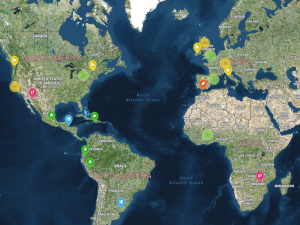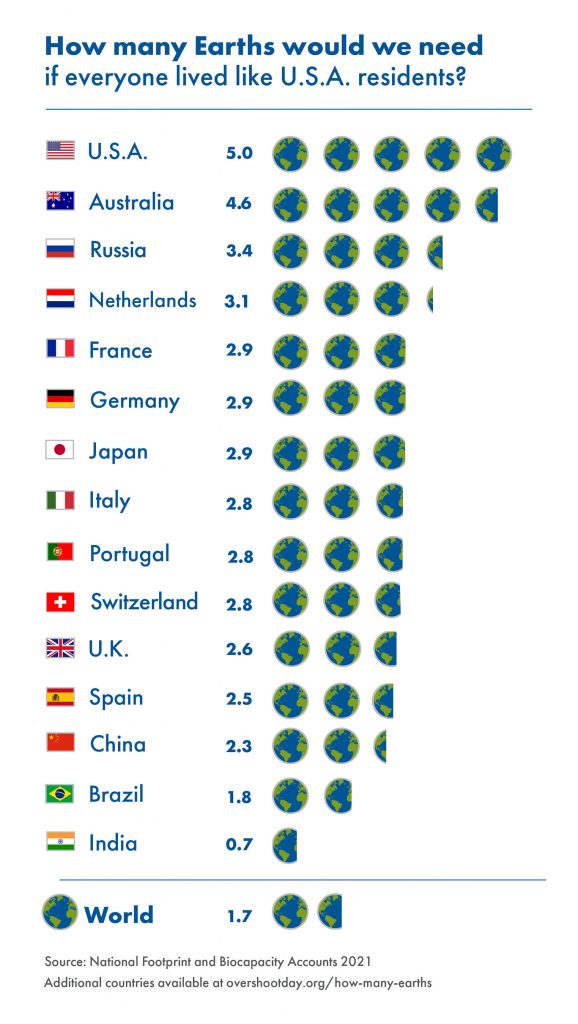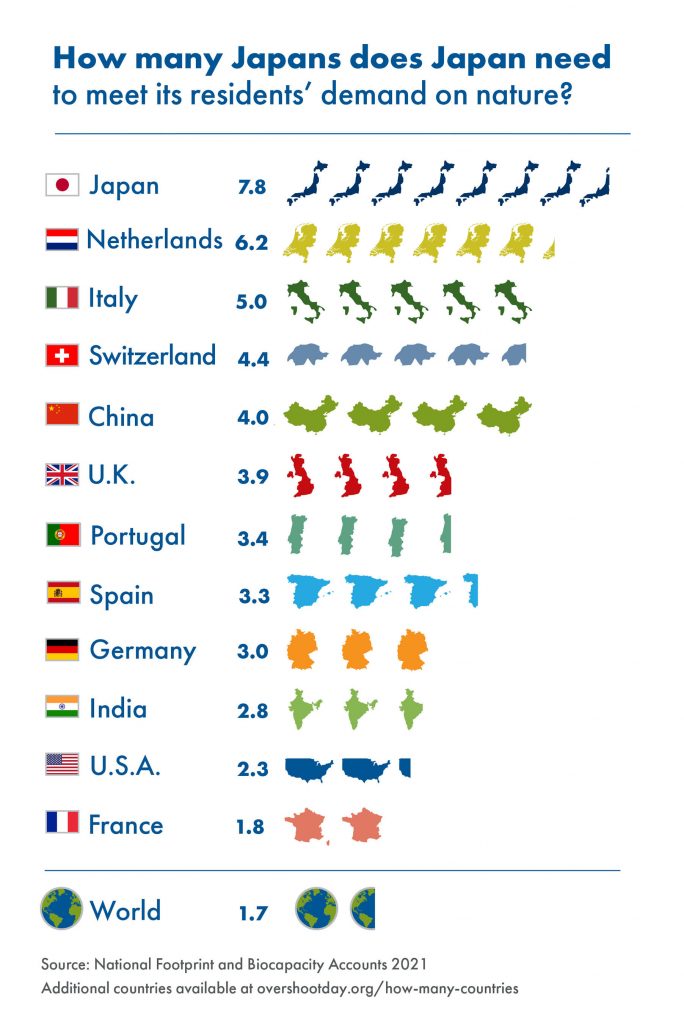

Earth Overshoot Day 2021: July 29th
As Earth Overshoot Day hits, the world and the Netherlands are largely unprepared to deal with its consequences, despite many available options.
Embargoed until July 28 2021, 6pm GMT
SUMMARY: This year’s Earth Overshoot Day has moved back to the pre-pandemic date, suggesting a return to business- as-usual. We are accelerating the depletion of the planet’s ecosystems on which every economy depends. This puts all countries at risk, particularly those who are already ecologically overextended, like the Netherlands. However, actionable ways exist to #MoveTheDate of Earth Overshoot Day, not just to combat the climate and biodiversity crisis, but also to protect one’s own country, city, or business. This will also be explored in a new research partnership with Wageningen University.
JULY 29, 2021 — From January 1st until today, humanity has used as much from nature as the planet is able to regenerate during this entire year: today is Earth Overshoot Day. Overshoot is the underlying cause of most environmental ills from biodiversity loss to deforestation, water and air pollution, fisheries collapse, and greenhouse gas accumulation in the atmosphere, leading to ever wilder weather patterns.
Human demand persistently overwhelming the biosphere may be the second most severe challenge humanity is facing in the 21st century. The challenge imposed by overshoot is only topped by one other: the risk of not responding. Tragically, most cities, corporations, and countries –including the Netherlands– are exposing themselves to this risk.
According to National Footprint and Biocapacity Accounts, based on the latest UN statistics, which also determine Earth Overshoot Day, the residents of the Netherlands use 6.2 times more from nature than Dutch ecosystems can regenerate. It is like using 6.2 Netherlands. 70% of that difference is attributed to carbon emissions from fossil fuel use. Furthermore, Dutch net-imports for food are significant: Dutch food consumption exceeds the regenerative capacity of Dutch agricultural and marine areas by over 90%. This means that the Netherlands are only able to grow about half of the amount of food its residents consume.
“It is unclear whether the Netherlands has the resolve to prepare itself adequately for the predictable future of climate change and resource constraints” said Mathis Wackernagel, president of Global Footprint Network. “While good efforts exist in the Netherlands such as boosting thermal efficiency of houses or giving preference to bicycles as a dominant mode of transportation, the country overall is still far from being one-planet compatible.”
Many solutions are available to radically decarbonize energy systems in a timely fashion. What is less clear is how the Dutch and the whole of humanity can feed themselves within planetary constraints. Given this knowledge gap, Global Footprint Network is excited to announce a four-year research collaboration with the Circular Food Systems research group at Wageningen University starting this fall. The goal of this new partnership is to explore ways to feed all of humanity within the ecological budget of our planet.
There are many ways to #MoveTheDate. Here are some cool options from around the world. Which ones move and inspire you?

Additional Resources
- 100 Days of Possibility launched by Global Footprint Network on Earth Overshoot Day, will reveal opportunities to reduce overshoot every day up to the climate COP26 in Glasgow this November.
- data.footprintnetwork.org provides data from the National Footprint and Biocapacity Accounts for all countries from 1961 onwards. The Dutch estimates are available here. Whether there truly is this recent decline in the Dutch Footprint is not clear since some may be attributable to noise in trade data. These accounts are maintained by York University for Footprint Data Foundation (www.FoDaFo.org)
- Earth Overshoot Day provides background information on Earth Overshoot Day, including infographics and videos.
- Ecological Footprint and Biocapacity Accounting – How the national accounts work.
- Earth Overshoot Day 2021 press releases.
About the Ecological Footprint
The Ecological Footprint is the most comprehensive biological resource accounting metric available. It adds up all of people’s competing demands for biologically productive areas – food, timber, fibers, carbon sequestration, and accommodation of infrastructure. Currently, carbon emissions from burning fossil fuel make up 60 percent of humanity’s Ecological Footprint.
About ecological overshoot
Since the early 1970s, humanity has been in an ecological deficit. While The Netherlands’ biocapacity per person is about half the world’s, its Ecological Footprint per inhabitant is about three times as large. The overload cannot continue forever. The effects of this global ecological overshoot can already be observed in the form of deforestation, soil erosion, loss of biodiversity and the accumulation of carbon dioxide in the atmosphere. Running an ecological deficit means that we are not only consuming the annual “interest” on our natural capital, but also depleting it by taking resources from the future to pay for the present. Operating on the ecological advances of future generations is obviously not a successful long-term strategy.
About Global Footprint Network
Global Footprint Network is an international sustainability organisation that is helping the world live within the Earth’s means and respond to climate change. Since 2003 we’ve engaged with more than 50 countries, 30 cities, and 70 global partners to deliver scientific insights that have driven high-impact policy and investment decisions. Together, we’re creating a future where all of us can thrive within the limits of our one planet. www.footprintnetwork.org
Media Contact
Amanda Diep (in California, USA)
+1 (510) 839-8879 ext.304
amanda.diep@footprintnetwork.org
Laetitia Mailhes (in France)
+33 650 979 012
laetitia.mailhes@footprintnetwork.org


